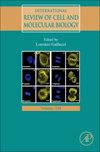Link between dysbiosis and cancer: Contributing mechanisms and factors.
3区 生物学
Q1 Biochemistry, Genetics and Molecular Biology
International review of cell and molecular biology
Pub Date : 2025-01-01
Epub Date: 2025-01-20
DOI:10.1016/bs.ircmb.2024.12.004
引用次数: 0
Abstract
The human microbiota is a complex ecosystem that dynamically interacts with the host systemically. Perturbations in the delicate balance of this ecological niche, termed dysbiosis, can make individuals susceptible to a multitude of diseases, including cancer. Specific microbes have been implicated in carcinogenesis through direct effects, modulation of the host immune system, and by promoting inflammation. Furthermore, the microbiota alters the response to and efficacy of anti-cancer therapeutics. Here, we highlight mechanisms by which dysbiosis contributes to cancer development, progression, and therapy as well as how the microbiota can be targeted to enhance cancer outcomes.
生态失调和癌症之间的联系:促进机制和因素。
人类微生物群是一个复杂的生态系统,动态地与宿主系统相互作用。这种生态位的微妙平衡受到干扰,称为生态失调,可使个体易患多种疾病,包括癌症。特定微生物通过直接作用、调节宿主免疫系统和促进炎症参与致癌。此外,微生物群改变了抗癌治疗的反应和疗效。在这里,我们强调了生态失调促进癌症发生、进展和治疗的机制,以及微生物群如何能够靶向提高癌症预后。
本文章由计算机程序翻译,如有差异,请以英文原文为准。
求助全文
约1分钟内获得全文
求助全文
来源期刊

International review of cell and molecular biology
BIOCHEMISTRY & MOLECULAR BIOLOGY-CELL BIOLOGY
CiteScore
7.70
自引率
0.00%
发文量
67
审稿时长
>12 weeks
期刊介绍:
International Review of Cell and Molecular Biology presents current advances and comprehensive reviews in cell biology-both plant and animal. Articles address structure and control of gene expression, nucleocytoplasmic interactions, control of cell development and differentiation, and cell transformation and growth. Authored by some of the foremost scientists in the field, each volume provides up-to-date information and directions for future research.
 求助内容:
求助内容: 应助结果提醒方式:
应助结果提醒方式:


